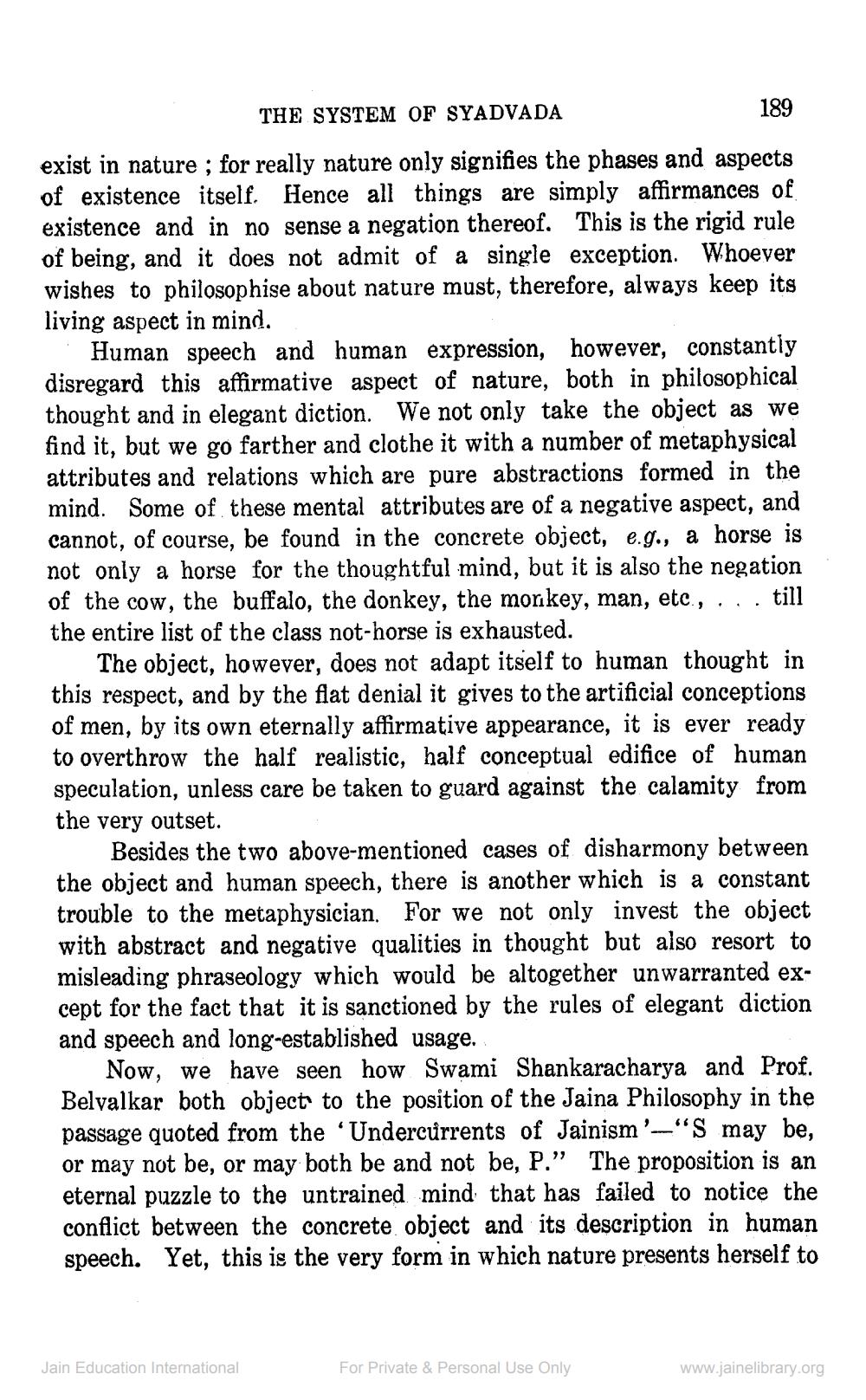________________
THE SYSTEM OF SYADVADA
189 exist in nature ; for really nature only signifies the phases and aspects of existence itself. Hence all things are simply affirmances of existence and in no sense a negation thereof. This is the rigid rule of being, and it does not admit of a single exception. Whoever wishes to philosophise about nature must, therefore, always keep its living aspect in mind.
Human speech and human expression, however, constantly disregard this affirmative aspect of nature, both in philosophical thought and in elegant diction. We not only take the object as we find it, but we go farther and clothe it with a number of metaphysical attributes and relations which are pure abstractions formed in the mind. Some of these mental attributes are of a negative aspect, and cannot, of course, be found in the concrete object, e.g., a horse is not only a horse for the thoughtful mind, but it is also the negation of the cow, the buffalo, the donkey, the monkey, man, etc., ... till the entire list of the class not-horse is exhausted.
The object, however, does not adapt itself to human thought in this respect, and by the flat denial it gives to the artificial conceptions of men, by its own eternally affirmative appearance, it is ever ready to overthrow the half realistic, half conceptual edifice of human speculation, unless care be taken to guard against the calamity from the very outset.
Besides the two above-mentioned cases of disharmony between the object and human speech, there is another which is a constant trouble to the metaphysician. For we not only invest the object with abstract and negative qualities in thought but also resort to misleading phraseology which would be altogether unwarranted except for the fact that it is sanctioned by the rules of elegant diction and speech and long-established usage.
Now, we have seen how Swami Shankaracharya and Prof. Belvalkar both object to the position of the Jaina Philosophy in the passage quoted from the ‘Undercurrents of Jainism'-"S may be, or may not be, or may both be and not be, P.” The proposition is an eternal puzzle to the untrained mind that has failed to notice the conflict between the concrete object and its description in human speech. Yet, this is the very form in which nature presents herself to
Jain Education International
For Private & Personal Use Only
www.jainelibrary.org




